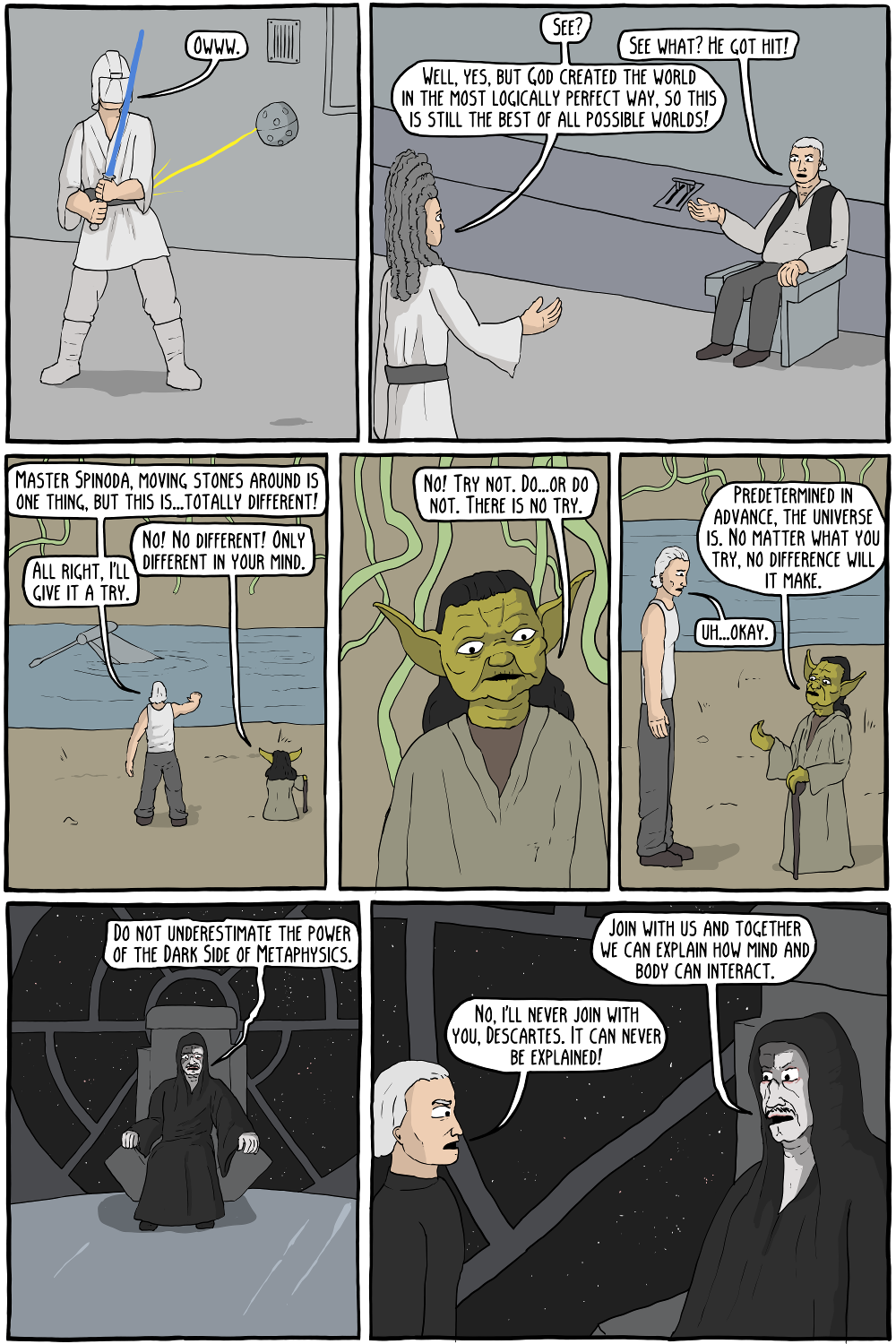


After Rene Descartes rose to prominence, with his mind body dualism, a particular problem became extremely pressing in metaphysics. That problem, is often called "the problem of interaction" (i.e., how does mind affect matter, especially as physical matter seems to have every effect caused by something physical). The problem of interaction is, by a wide margin, the thing that spawned the funniest ideas in the history of philosophy. Descartes himself kicked it off, claiming that one solution might be that the Pineal Gland (the function of which was unknown at the time) might act as a sort of antenna for the soul, giving it access to affect the body.
Nicolas Malebranche was next in line, and his solution is in some ways funnier. He said that when you exert your will, it actually has no affect on your body, instead, all effects are caused by God directly. So every single time you try to do something, God goes in there and does it. So if you try to raise your arm, it doesn't do anything, but God then raises your arm (if he chooses to anyway!).
Leibniz had a somewhat similar solution. For Leibniz the problem was even more pressing, since he discovered kinetic energy. For Leibniz, Descartes's solution (that they interfaced in some way) was even more impossible, because while you might just say that some things weren't caused by material causes, but instead caused by interaction with the soul, Leibniz couldn't use a solution like that because then the "spirit world" would be adding energy into a closed system. Leibniz claimed that the world actually consisted of Monads, which had no causes or effects, had some kind of perception, and were never created or destroyed. He solved the mind/body problem by saying that the mental and physical (both of which were just monads) were pre-established to be in harmony by God. So if I try to raise my arm, it doesn't actually effect anything, my arm just happens to raise up at that moment because God set it up that way when he created the universe.
Spinoza had the least funny solution, and just claimed that everything was all the same thing (God, or nature). Everything was then determined ahead of time by causation, so the free will that the soul was suppose to have was an illusion, and just another part of causation. Spinoza's theories continued to be popular long after many of the others had fallen out of favor.
Berkeley wasn't in the comic, but his solution was pretty funny too. Maybe he should have been Han Solo. Oh well. His solution was similar to Spinoza's, claiming that there was only thing - ideas. There was no physical world at all! The only reason that chairs and stuff were still around when we weren't looking at them was because they were "in the mind of God".
Hume was a radical empiricist, like Berkley, and claimed that all of our ideas came from observation. Ideas which didn't appear to be just from observation, such as things that we've never seen - like a gold mountain, just came together by relating together two ideas that we got from observation (i.e. gold and mountains).
Kant, as the prophesy foretold, brought balance to metaphysics by synthesizing the ideas of the idealists, rationalists and empiricists. Kant's transcendental idealism said that we got most of our ideas from experience, but that experience was also largely structured by our minds, and certain ideas transcended observation (such as space, time, causation, etc). Kant's metaphysics was extremely influential, and for many people he basically solved metaphysics, well, at least until the 20th century philosophers decided that doing metaphysics was a hopeless and pointless endeavor to begin with.
Star Wars was a popular sci-fi movie series, best known for being not as good as Star Trek.
Permanent Link to this Comic: https://existentialcomics.com/comic/103
Support the comic on Patreon!










